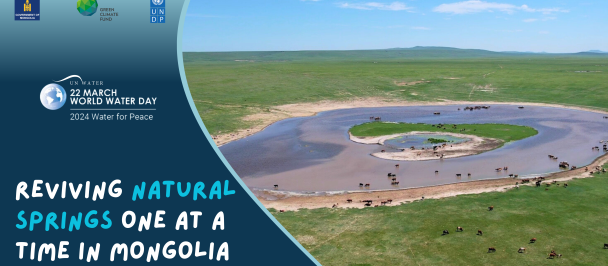Mongolian Sustainable Cashmere Platform
Project summary
Mongolian Sustainable Cashmere Platform (MSCP) is a national-level umbrella mechanism with collaborative leadership. The MSCP adopts a comprehensive systematic strategy to tackle key challenges currently facing the sector. The MSCP will work with a range of stakeholders to produce and implement a Collective Action Plan for sustainable cashmere.
Initial consultations on the potential to establish a structured national dialogue for collective action on sustainable cashmere in Mongolia started in January 2019 as part of advocacy work associated with the UNDP pilot project on “Sustainable Cashmere Value Chain” funded by UNDP’s Country Investment Facility. A number of formal and informal meetings were conducted by UNDP with key stakeholders in Mongolia and internationally together with two specific studies:
1) A ‘supplier-side analysis’ comparing existing initiatives related to ‘sustainable cashmere’ in the country (Green Gold Animal Health Project, SFA, ADB, WCS, AVSF and UNDP)
2) A ‘demand-side analysis’ interviewing key buyers and users of cashmere from across the spectrum of brands and companies to consolidate what their requirements and needs are from the demand side for sustainability sourced cashmere
Both studies clearly called for stronger multi-stakeholder collaboration mechanisms to be established in order to address in a more systemic manner some of the key challenges currently facing the sector.
UNDP then organized a one-day conference on “Multi-stakeholder Collaboration for Systemic Change” on 12 June 2019 in Ulaanbaatar in partnerships with AVSF, MOFALI and other key organizations. About 100 participants representing the government, development partners, industry associations, domestic and international supply chain actors, as well as herders’ representatives participated. Participants agreed during the day on a list of priority themes for aligning interest in the future as well as for UNDP to start developing a road map for a multi-stakeholder platform on sustainable cashmere. Priority themes were agreed to advance positioning Mongolia as a leading producer of sustainable cashmere by accelerating current efforts, to support the Government of Mongolia in the implementation of its cashmere program from a sustainability perspective and to jointly identify best mechanisms available for national dialogue and collective action for sustainable cashmere in Mongolia.
Project objectives
The Platform’s objectives are to ensure a strong and coherent legal and institutional framework for the sustainability of cashmere production in Mongolia and establish partnerships and coordinated investments and actions that accelerate current efforts to advance the sustainability of production and processing in Mongolia, which will enable it to be a global leader for sustainable cashmere production.
MSCP’s four overarching Objectives are as follows:
1) To formulate and implement a collective action plan that addresses the root causes limiting the sustainability of cashmere in Mongolia;
2) To work alongside government to ensure a strong and coherent legal and institutional framework for the sustainability of cashmere production in Mongolia;
3) To establish partnerships and coordinated investments and actions that accelerate current efforts to advance the sustainability of cashmere production and processing in Mongolia;
4) To position Mongolia as a global leader for sustainable cashmere production.
Expected Results
In a nutshell, Mongolian Sustainable Cashmere Platform can be described as multi-level, multi-stakeholder discussions, dialogue, meetings, and consultations towards achieving a shared goal through implementing a Collective Action Plan that is approved through consensus.
Platform’s structure
The Platform is governed by the Steering Committee and encompasses Advisory Committee and multiple Technical Working Groups.
Platform’s Steering Committee (SC) has been established and first inception meeting was organized on 26th of May during which the SC ToR and the Platform’s workplan for 2020 have been approved.

 Locations
Locations




